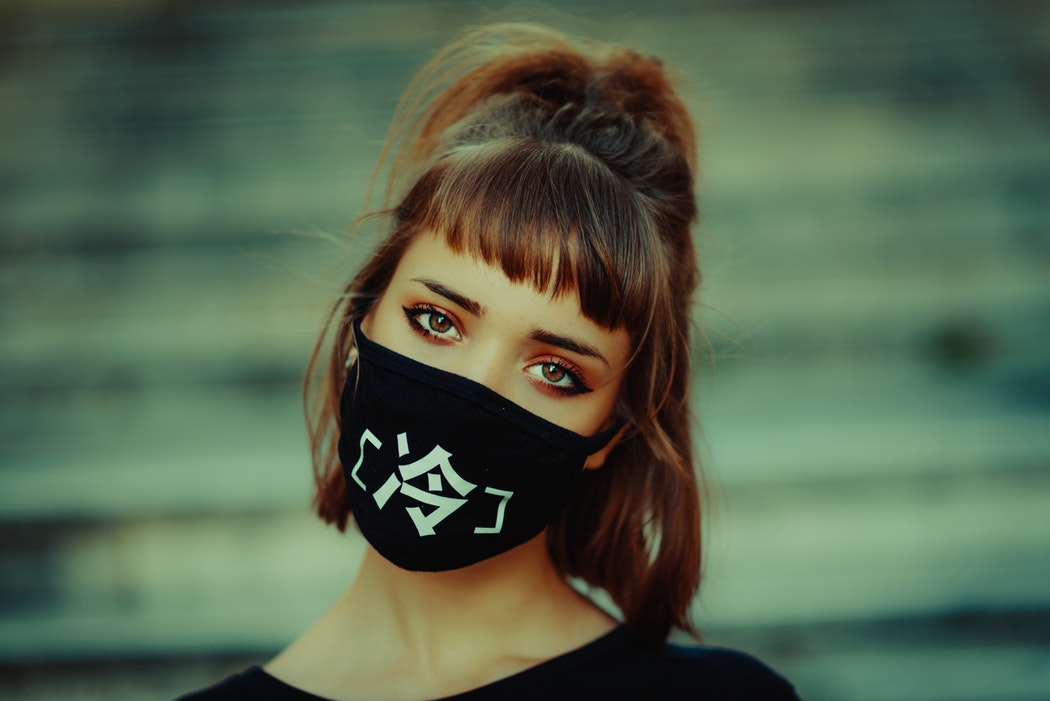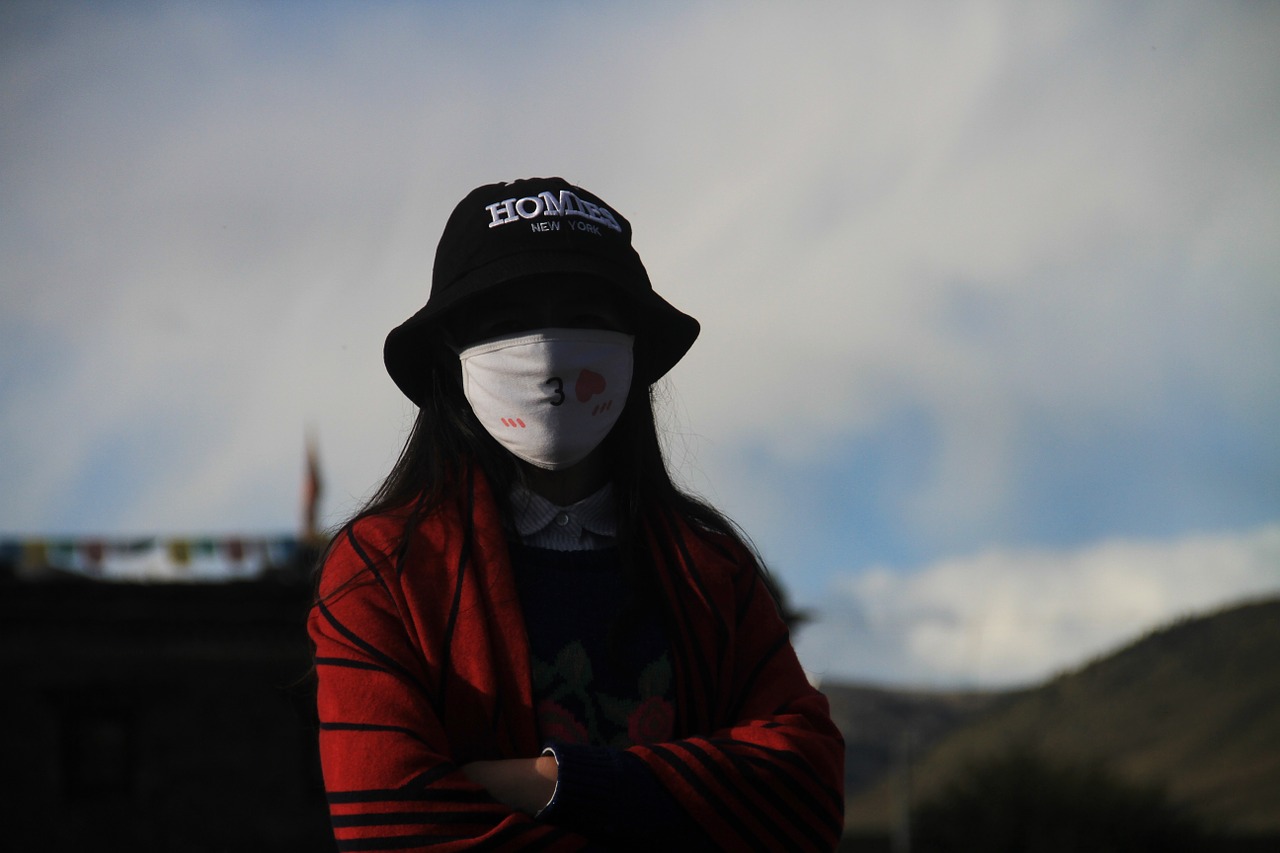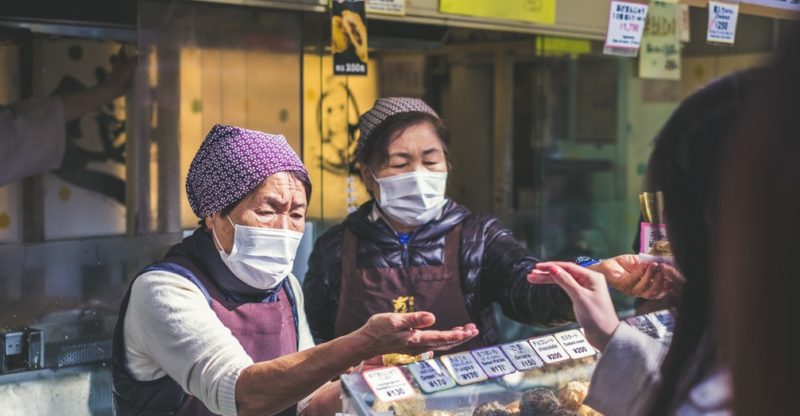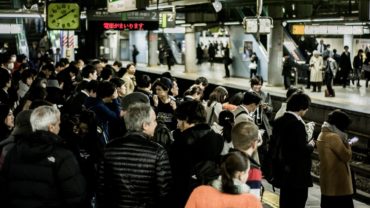5 Reasons Why Japanese Wear Surgical Masks
If you go to California, you will see so many people wearing sunglasses.
The reason is obvious.
California is always Sunny, so it’s simply to protect their eyes from the strong sunlight.
In the same way, you will see so many people wearing masks if you go to Japan.
And the reason is not only to protect themselves from germ, but It kind of reflects their culture.
In this article, I will introduce you 5 reasons why Japanese people always wear surgical masks.
Table of Contents
1. Pollen

It is often said “if you live in Japan more than 5 years, no matter what, you will get pollen allergy.”
The pollen allergy is actually a national issue in Japan.
In fact, more than a half of the population in Japan have experienced pollen allergy.
So the first reason why they wear surgical masks is to protect themselves from pollen.
Especially during Spring, there are many people who wear masks because of the pollen, and it is a serious problem nowadays.
The main trees that cause the pollen are ceder (known as sugi in Japanese) and Japanese crypress (known as hinoki in Japanese).
Even if you don’t have any problems with pollen in your native country, these trees might cause you hay fever after living for a few years.
Cause
“Why does Japan have so much pollen?”
It wasn’t even a thing before 1960’s.
The reason is because of the reconstruction policy after WWII.
After WWII, Japan started putting effort on reconstructing infrastructure throughout the country.
The important resource for this reconstruction was ceder and Japanese cypress trees.
So the government planted those trees and made large forests.
As a result, they stated producing pollen after a couple of decades.
2. Germ

This is also one of the main reasons.
In Japan, when a person takes a day off from work, it is highly expected that he/she wears a mask next day at work.
So it’s rather to spread germ than to protect themselves from it.
It is also a respect for other people in the public.
In elementary school, kids are often taught that they should wear masks when they are cold or sick.
So it is a part of their culture.
3. Pollution

Pollution is also a part of the reasons.
Especially in Tokyo, there is so much exhaust emitted from cars, and it has been causing health concerns among Japanese people.
Another problem is from the industrialization of China.
It’s called “PM 2.5 (Particle Matter),” the dust drifting with yellow sand from Taklimakan Desert in the South West of China to its neighborhood countries.
It is the cause of air pollution, and morning news shows the PM 2.5 rate for the day.
If it’s too high, a caster tells everyone to wear a mask when they go outside since it causes serious health problems such as asthma.
4. Fashion

Some people wear masks for fashion.
“K-fashion”(Korean Fashion) is probably a great example of this.
If you go to Seoul, you will see many Korean people wear black face masks.
Their “weird” fashion is the whole new level, but they’ve proved surgical masks can be fashion accessories.
Many Japanese people practice the same idea as those Koreans, so they wear masks for fashion.
5. Mask Dependency

The last reason is very passive one.
There is a new word in Japanese created in last a few years, which is “mask dependency” (Masuku Izon).
That means literally people who are dependent on wearing masks.
Some people are actually not confident to show their face to other people.
When a girl is not wearing a makeup, it’s a good way to hide her face.
Some people care about their breath, so a mask can prevent others to smell it.
Of course, it totally depends on a personality, but there are actually counselors who specialize in this symptom for the people who can’t go outside without masks.
So those reasons really reflect Japanese culture and even social problems in Japan.
Wearing a mask is kind of weird in other countries around the world, but it’s totally normal or even encouraged to wear in Japan.





nn